If recently we were talking about a singular writer like Zadie Smith, which aims to create a school of realism adjusted to the XNUMXst century, is not lagging behind an already more veteran Emmanuel Carrere that transits with overwhelming sufficiency between the cinematographic and the novelistic, developing in both creative spaces his chronistic gift around fascinating intra-stories due to their realistic crudeness sifted by his imagination.
Admirer of such an eccentric author as Philip K. Dick (exponent of a science fiction literature who cast his shadows on metaphysics, from the passage through all the thresholds of experience), Carrère always points to surprise in stories that border on the biographical to the open grave.
Portraits of protagonists to the limit, where life hurts. Pain as a premise of existence, of bitter lucidity, of consciousness and of that extreme value of what is important when unfortunately it is discovered that it is.
And even so, Emmanuel Carrère knows how to insert a point of the fantastic in everything he writes, whether plots with biographical or autobiographical dyes, or recovering details from chronicles of events. Perhaps it is a matter of a moralizing intention of the staging of a story, with the will to initiate the reader in the disaster that may come.
Because today we can read Hans Christian Andersen ignoring his bitter childhood evocation with the match girl who dies of cold in the street, with his satirical review of the new suit of the emperor who walks naked ... Undoubtedly the tragic residue of these stories is a literary heritage that Carrère has managed to transfer to a world in the one that, precisely, we are no longer for stories.
Top 3 recommended books by Emmanuel Carrère
The adversary
The most valued novel by the French writer. Beyond the opportunism of writing about a real character like Jean-Claude Romand (a guy at the top of the black history of the Gallic country), who was released precisely in 2019, the truth is that the hybrid between biography and fiction makes up a powerful story of the sinister, of the capacity of the general evil of the human being.
Because as he said, I am human and nothing human is alien to me. Romand was not a monster, not at least in the literary consideration that tries to distance us from this type of vile psychopaths. Jean-Claude the human and his essence to do what he did, to get rid of his entire family and move on with his mental construct.
Because once the deception was discovered, the fraud of his adopted role as a doctor, the stridency led him to the most unfortunate of ends, to the most unexpected destruction of his personal life. And yes, it is uncomfortable to think that this man was one of us, but this is how this book shows us, with the teaching of appearances, of the unapproachable suspicion of others, of the pretense and frustrations that an innocent fiction can lead to. life to atrocious behavior. With the vertigo of a presentation of careful and precise scenes like those of a movie, we advance through a story that does not leave indifferent.
Limonova
The Soviet Union emerged in the second half of the XNUMXth century as a severe and alienating regime. Emmanuel Carrère said he wrote this book from the knowledge of a dissident of that regime, a Soviet who adopted that alias for God knows what reasons and who took advantage of Carrère's pen to develop his biography among dazzling lights and death-colored shadows.
With Carrère's ability to adorn reality with his corrosive patina, we meet Limonov immersed in Soviet society, where he moved among subversive spaces more out of nihilism than activism. Until he found his bones in New York to escape a more than probable accident. Not that America loomed for him as a millionaire's chance in Las Vegas.
A similar underworld awaited him in that city that in winter offered the same freezing cold as Siberia. Limonov was a type of resources that could get ahead by a stroke of luck that placed him in the public sphere with some novel style Bukowski that managed to attract the attention of those who want to know the wild side from their reading chair. Thanks to that book Limonov began to know more of the world, with a similar magnetism for the problems wherever he went. Limonov's circle closes with a return to Russia in which perhaps his international recognition saved him from some new accident. Until recent days, when he stared directly at Putin himself.
Of other people's lives
There are times when tragedy touches us so closely that we can feel its guillotinesque wake whistling right under our noses.
Tragedy is a blow but also an uncomfortable relief when it has not just mutilated your world. That next blow was in a writer like Carrère the perfect leitmotif for this half-biography, half-novel story, because the most infamous tragedy cannot be related with absolute fidelity from an outside perspective. But Carrère makes up for it, or rather complements it all with that brilliance of his absorbing literature that focuses where his sum of spotlights is pointing. Opposite poles attract but it is that the same poles, in their repellency, are discovered as very different extremes.
Tragedy is not tragedy without prior love. The deepest sadness cannot be overcome without resilient love. And in these balances the characters of this novel move about palpable lives in our environment. We then felt the shudder not only by the protagonists of the novel but by others closer to whom we began to calibrate their exposure to pain and their determination to love in order to continue living. A book that elevates the meaning of empathy.
Other recommended books by Emmanuel Carrère
Yoga
If it was a matter of breaking taboos about mental illness, Emmanuel Carrere he has done his part with this brutally sincere play. Only, on his inscrutable path towards the abyss, Carrère takes advantage of precisely that darkness to make us volatile, rambling and disturbing. Order and chaos take over formally and also in the background and everything happens with the changing rhythm of that vivid bipolarity with its extreme truth on both sides. And it is that the normal contradictions with which we live are that small reflection of when the foot is lost and the tense emotions overflow imagination and vision of the world ...
Make it clear to potential clueless readers that this is not a practical yoga manual, nor is it a well-intentioned self-help book. It is the narration in the first person and without any concealment of the deep depression with suicidal tendencies that led the author to be hospitalized, diagnosed with bipolar disorder and treated for four months. It is also a book about a relationship crisis, about emotional breakdown and its consequences. And about Islamist terrorism and the drama of refugees. And yes, in a way also about yoga, which the writer has been practicing for twenty years.
The reader has in his hands a text by Emmanuel Carrère on Emmanuel Carrère written in the manner of Emmanuel Carrère. That is, without rules, jumping into the void without a net. Long ago the author decided to leave behind fiction and the corset of genres. And in this dazzling and at the same time heartbreaking work, autobiography, essays and journalistic chronicles intersect. Carrère talks about himself and takes a further step in his exploration of the limits of the literary.
The result is a stark expression of human frailties and torments, an immersion in personal abyss through writing. The book, which has already generated controversy before its publication, leaves no one indifferent.
the bering strait
Perhaps the Russians have not noticed. While their conflicts focus on Eastern Europe, the other side could easily launch a conquest of the United States claiming for itself that Alaska a stone's throw from Chukotka. Surely from a Bering Strait where the poles seem to claim each other, this research was born...
In times of communism, party members received updates from the great Soviet Encyclopedia every month. When in July 1953 the feared Beria was finally arrested, the encyclopedia still contained a long and laudatory entry dedicated to him. A few days after the arrest, the comrades received an envelope with a page and some instructions: they were asked to, with great care and the help of a razor blade, cut out the text about Beria and replace it with the one attached to them, referring to the Bering Strait. Thus, Bering replaced a disgraced Beria, who, following the usual method of the Soviet authorities, disappeared without a trace.
This essay, which won the Grand Prix of Science-Fiction and Anagrama publishes for the first time directly in the «Compacts» collection, talks about history in the conditional, what could have been and was not. He talks about uchrony: what would have happened if Cleopatra's nose had been shorter or Napoleon had emerged victorious from Waterloo... Carrère mixes chance and causality, reality and fiction, and proposes a most provocative game.
V13: Judicial Chronicle
Friday, November 13, 2015. Jihadist attacks take place in three different parts of Paris. The most serious is the one in the Bataclan room, where the Eagles of Death Metal are performing. The result of the attacks in the heart of France is one hundred and thirty dead and more than four hundred wounded. Years later, for nine months – between September 2021 and June 2022 – the trial is held at the Palace of Justice in the capital.
There are fourteen defendants: the main one is the only survivor among the Islamic State terrorists who participated in the massacre. He survived because he did not detonate his belt with explosives. Did the mechanism fail? He was afraid? Or perhaps a fleeting moment of regret and humanity? The rest are collaborators to varying degrees. And then there are the witnesses –who tell very harsh stories–, the relatives of the deceased, the severe prosecutors, the defense lawyers, who use tricks to try to save their clients, the court, which must issue a sentence... Justice coldly assess barbarism.
Emmanuel Carrère covers the trial and sends his weekly chronicles to L'Obs. Those texts are the basis of this book. In its pages we find the narration of the trial, the voice of the victims, the upstarts who have tried to pass themselves off as victims, the heroes who helped stop the criminals, the groups of lawyers, the details behind the scenes... The human dimension and the political dimension. The result: an overwhelming volume and a necessary testimony. Journalism made literature through the insightful gaze of Carrère.

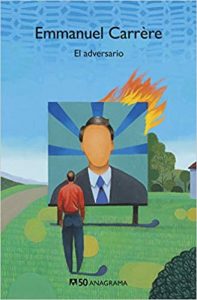
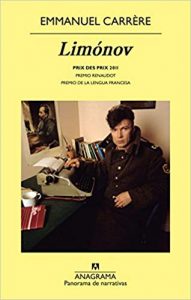

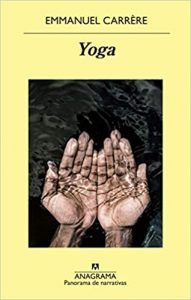
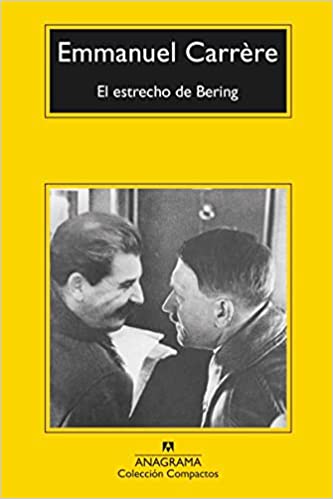
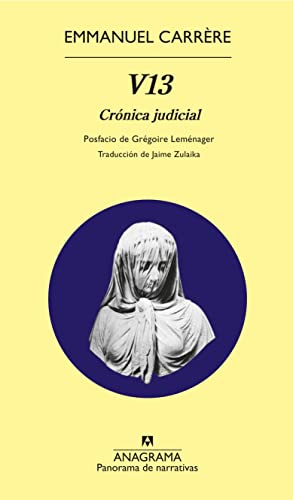
1 comment on «The 3 best books of Emmanuel Carrère»